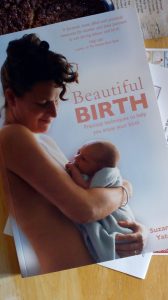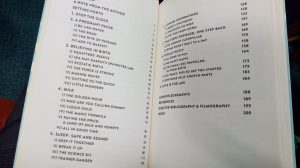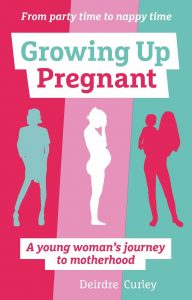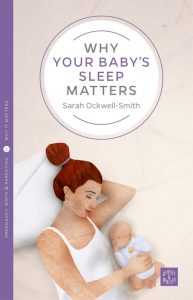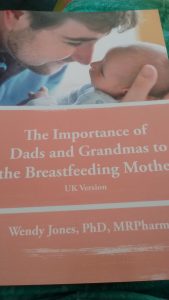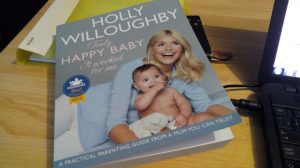 Truly Happy Baby – Holly Willoughby
Truly Happy Baby – Holly Willoughby
First, a confession. My name’s Karen and I have no idea who Holly Willoughby is. Having browsed her book, I understand that she is a photogenic mother of three. I assume she’s also some sort of television personality, former pop star, or reality TV type. Why her views on how to parent your baby are important escapes me completely, but an antenatal session rarely goes by these days without someone mentioning her wonderful book.
So I have acquired the wonderful book, and set out to see just how wonderful it truly is.
Holly explains in her introduction that, on becoming a mother, she became the expert on motherhood, and immediately knew she would write a book telling other mothers all the things that nobody else tells them. This is a subject I may have touched on before. Holly’s approach is encouraging: trust your instinct, don’t expect too much too soon, be led by your baby. These are all very important points. She’s also going to be as honest as she can, and give you lots of top tips that worked for her, but you should still do your own thing because every baby is different, and everything will be alright because love.
The book begins with a chapter on feeding, in which she shares some useful information but in the most mealy-mouthed way in order to be inclusive of mums who give formula. In the first few pages Holly provides a useful shopping list, some nonsense about what to eat to “improve the quality and quantity of the milk you are producing” (p17) and a recipe for lactation cookies. There are some pictures to demonstrate positioning, none of which are laid back and there are some helpline numbers for support, none of which are the NCT. She also perpetuates the unhelpful idea of foremilk and hindmilk. Solutions offered for painful nipples are lanolin cream and nipple shields, and absolutely no mention of positioning and attachment, or skilled support.
Moving on to expressing, she points out that “you’ll feel like a cow” (p29), but does at least mention the role of oxytocin in expressing milk.
On formula, she lets us know that she paid a premium for one with a probiotic; other useful information she might have included is that all baby formula must be made to the same standard, and different manufacturers use different names for the same added, unnecessary probiotics. She does describe the recommended method of making up formula, but on the facing page another one of her great tips is not to bother doing it like that because it’s just too much faff to feed your baby safely.
I love the section on winding, in which she says “there’s never a good reason not to wind” (p43) and then goes on to give a good reason not to wind (i.e. your baby doesn’t have wind).
On weaning, again Holly plays fast and loose with the guidelines, because “ultimately it’s up to you.” (p46) Of course this is true, but how can she expect the poor harried mother to decide when the information she shares is so contradictory?
You’d think by this time I would have stopped reading in order to maintain my famous calm, but I couldn’t help dipping into the chapter on sleep. So far so good, we have lots of information about safe sleeping conditions; however within two paragraphs she tells us that co-sleeping is not a good idea, but she did it anyway… on a sofa bed! So about as unsafe as you can get. Remember, she says, do what works for you. Every baby is different. She can’t say that enough, she says. (She can).
Unsurprisingly, Holly recommends getting into a routine from three months. There are lots of nice clock-shaped charts, which she recommends not trying to follow too closely because they worked for her but every baby is different, etc. Apparently turkey is a good food for getting a baby to sleep, who knew. Let’s skip the bit about sleep training, and move on to the useful stuff on getting support for your own sleep deprivation.
The next chapter is on wellbeing, and is actually a very useful and comprehensive guide to caring for a newborn. I’d be inclined to pull this bit out of the book and offer it to people who feel they need some sort of baby manual; it’s far better than the rest of it.
Chapter four, named Lifestyle, seems to be an extension of the wellbeing chapter, with a few extra bits about how to register a birth and how to go on holiday with a baby. None of this is particularly ground-breaking or unavailable online.
And finally, Looking After You. Here we learn about piles and postnatal depression. Interestingly, we get fewer personal anecdotes in the pages about resuming your sex life, but Holly does advise that it’s scientific fact that new mothers don’t love their partners for the next 18 months. No reference is provided for this fascinating piece of research.
So in summary, Holly Willoughby has three babies, but all babies are different and you should do what’s right for you. For £16.99 you too can benefit from this profound wisdom.

